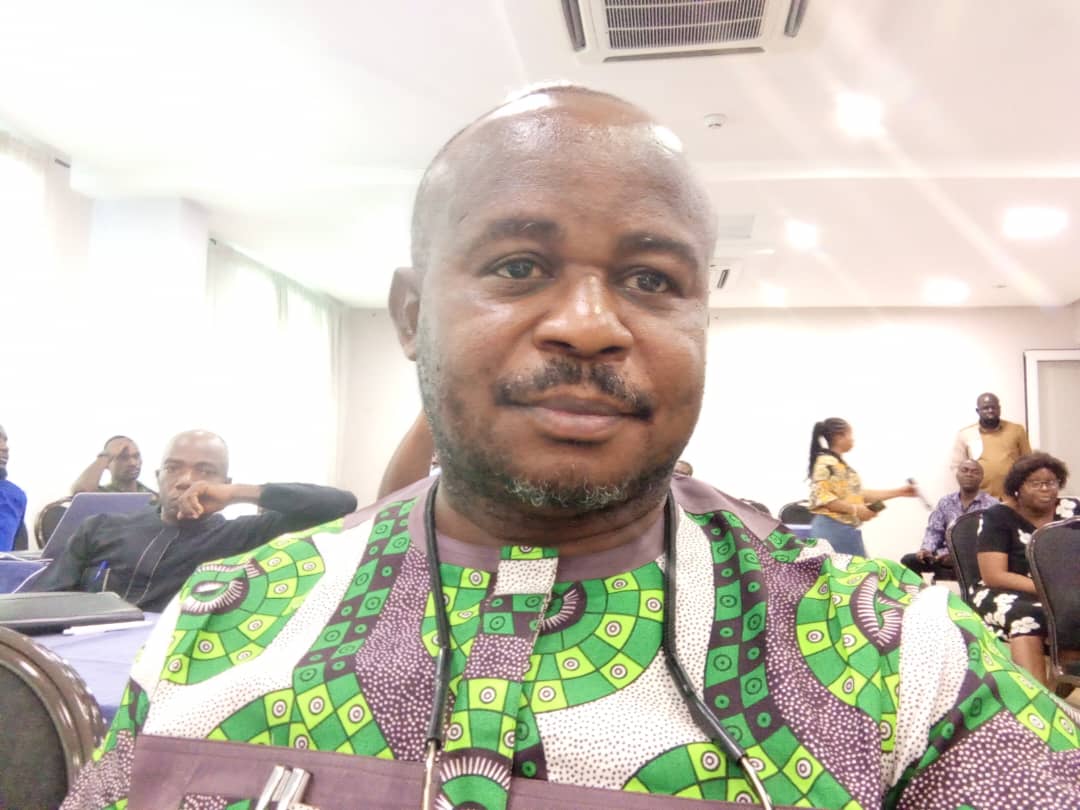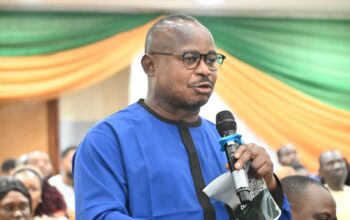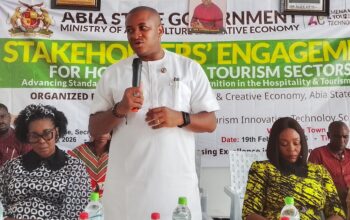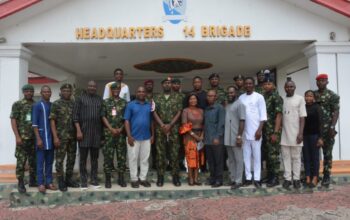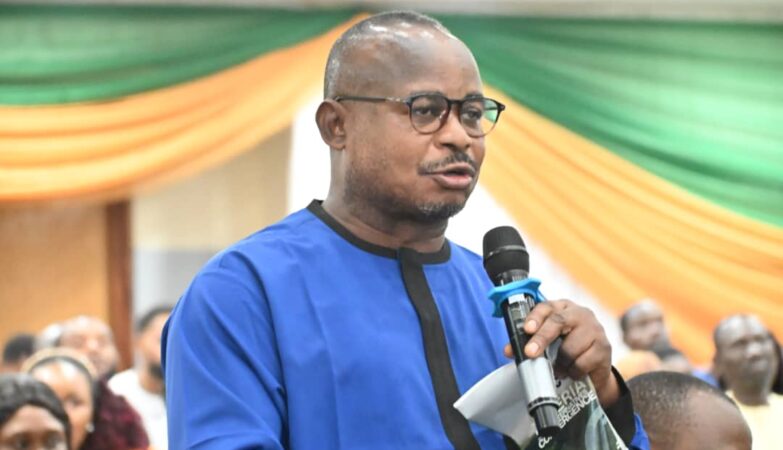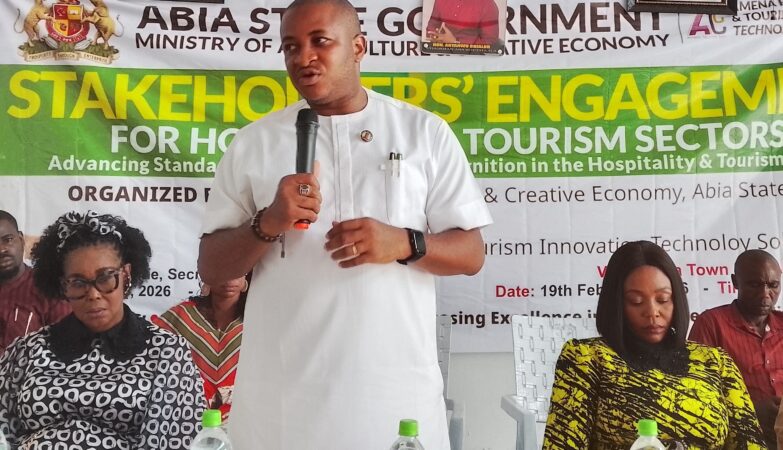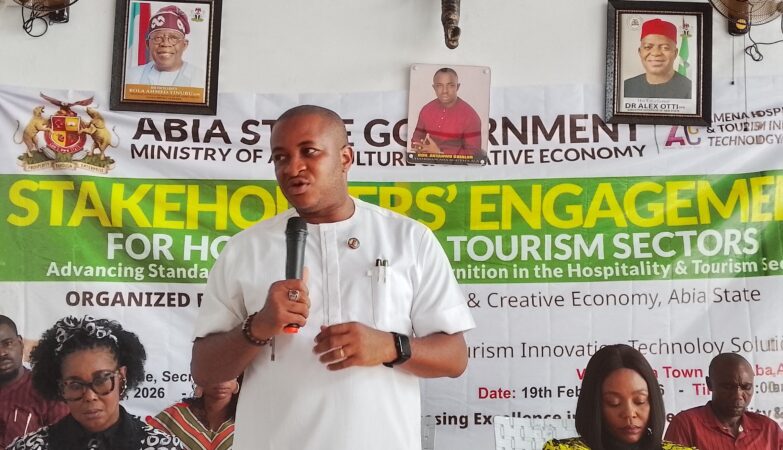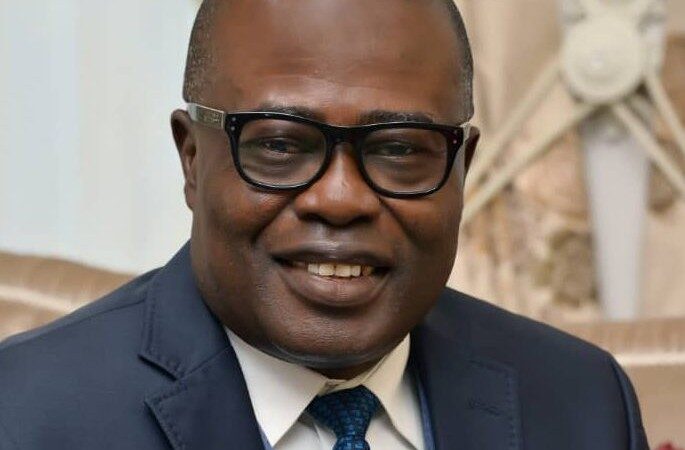On the fifth anniversary of the Lekki Toll Gate shootings during the End SARS protests, the Foundation for Environmental Rights Advocacy & Development (FENRAD) is calling national and international attention to the disturbing trend of repression and shrinking civic space in Nigeria.
In a statement issued today, FENRAD Executive Director, Comrade Nelson Nnanna Nwafor, highlighted the growing intolerance of dissent, suppression of peaceful protests, and violations of constitutional rights that threaten Nigeria’s democratic future.
End SARS: A Turning Point Met With Tragedy
The 2020 End SARS movement, a youth-led protest against police brutality and extrajudicial killings by the now-disbanded Special Anti-Robbery Squad (SARS), marked a defining moment in Nigeria’s civic awakening. Despite being largely peaceful, the movement was met with state violence, culminating in the tragic events of October 20, 2020, when armed security forces allegedly opened fire on unarmed demonstrators at the Lekki Toll Gate in Lagos.
“The Lekki massacre remains a haunting reminder of the Nigerian state’s unwillingness to listen to its youth,” said Nwafor. “Instead of engaging protesters, the government chose to silence them through force.”
Free Nnamdi Kanu: Judicial Defiance and Suppressed Dissent
FENRAD also expressed deep concern over the continued detention of Mazi Nnamdi Kanu, leader of the Indigenous People of Biafra (IPOB), despite multiple court orders granting him release. Peaceful demonstrations calling for his freedom, particularly across the South-East, have been met with disproportionate military crackdowns, arrests, and intimidation.
“The refusal to comply with court rulings on Kanu’s case sets a dangerous precedent and undermines judicial independence,” Nwafor stated. “Labeling peaceful protesters as threats to national unity erodes democratic principles and fuels further discontent.”
A Broader Pattern of Repression
FENRAD notes that these incidents are part of a wider pattern of shrinking civic space in Nigeria. The organization points to:
Surveillance and arbitrary arrests of journalists, human rights defenders, and civil society leaders;
Crackdowns on protests and civic groups, especially those critical of government actions;
The 2021 Twitter ban, perceived as a move to stifle digital mobilization;
Judicial harassment, travel bans, and asset freezes targeting dissenting voices.
“This is not just about End SARS or IPOB. It’s about every Nigerian’s right to speak, assemble, and demand accountability. We are witnessing the criminalization of civic engagement
Democracy in Peril: The Cost of Silence
According to FENRAD, democratic governance cannot thrive in an environment where fear replaces freedom. The organization warns that repression and intolerance risk alienating a generation and encouraging radicalization in place of reform.
“When people are silenced instead of heard, democracy suffers. Nigeria cannot afford to keep walking this dangerous path,”
FENRAD’s Recommendations: A Call for National Renewal
To reverse the trend and rebuild trust between the government and citizens, FENRAD urgently calls for:
1. Comprehensive police and judicial reforms, including implementation of the promises made after the End SARS protests;
2. Respect for judicial authority, including immediate compliance with court rulings regarding Nnamdi Kanu’s case;
3. Protection of peaceful protests, civil society groups, and journalists from harassment and persecution;
4. An inclusive national dialogue addressing deep-rooted ethnic, social, and political grievances;
5. Accountability and transparency in the conduct of security forces and public institutions.
Conclusion: Repression Is Not the Answer
FENRAD believes that the strength of any democracy lies in its ability to accommodate dissent, not suppress it. As Africa’s largest democracy, Nigeria must rise to the occasion and guarantee its citizens their constitutional rights.
“Nigeria’s future lies in openness, justice, and human rights not in intimidation and silencing,” concluded Nwafor. “We call on all democratic actors civil society, the judiciary, the legislature, and the international community to speak out and act in defense of Nigeria’s civic space.”
About FENRAD
The Foundation for Environmental Rights Advocacy & Development (FENRAD) is a Nigerian-based civil society organization committed to promoting environmental justice, human rights, democratic governance, and social inclusion.
Signed
Comrade Nelson Nnanna Nwafor
Executive Director, FENRAD
Tel: 08033383708, 07062949232
Email: info@fenrad.org.ng
Website: www.fenrad.org.ng

